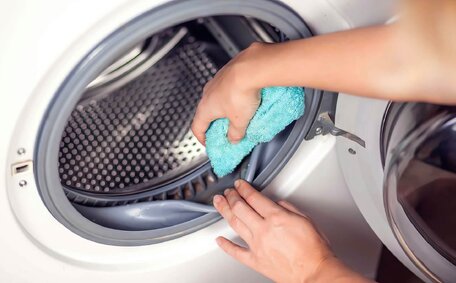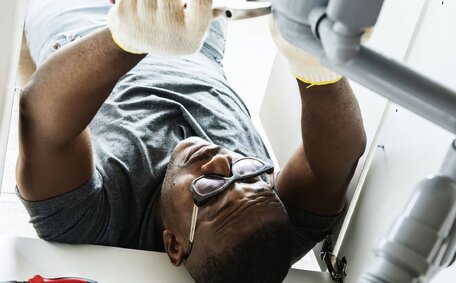Introduction to Hot Water Systems and Expected Lifespans
A dependable hot water system is essential for every Australian household. Nevertheless, these systems have finite lifespans. The typical lifespan your hot water systems achieve depends on several factors like type, maintenance, water quality and usage.
Understanding the lifespan of your hot water system is crucial, as it varies across types such as gas, electric, solar and heat pump, each influenced by distinct factors. Each type comes with its own life expectancy.
Electric hot water systems typically have a lifespan of 8 to 12 years. Gas hot water systems generally operate efficiently for 10 to 15 years. Solar water heaters boast a substantial life expectancy for hot water provision, depending on several factors, but expectations generally range between 15-20 years.
Heat pump water systems can remain operational for more than 15 years with proper maintenance.
Water quality, usage patterns, and maintenance routines are crucial determinants of your water heater’s longevity, in addition to the system type.
Regular servicing, including replacing heating elements, exchanger components, anode rods and monitoring for leaks and corrosion, is key to maximising your system’s lifespan. Conversely, poor maintenance and water quality problems, such as hard water, can accelerate degradation.
This article provides a detailed exploration of the typical lifespans of various hot water heater types. We’ll also cover the signs that your system may be nearing the end of its functional life, and tips to extend its lifespan through proper maintenance.
Average Lifespans of Different Hot Water System Types
Below are the average lifespans of the main types of hot water systems prevalent in Cambridge Park, Sydney:
- The lifespan of electric hot water systems ranges from 8 to 12 years
- Gas hot water systems - 10 to 15 years
- Solar hot water systems - 15 to 20 years
- Heat pump water systems typically operate efficiently for over 15 years depending on maintenance
Components in gas hot water systems, such as the burner assembly, may wear out over their average lifespan of 10-15 years.
The lifespan of gas hot water systems heavily depends on proper maintenance, such as anode rod replacement and system flushing.
Solar hot water systems exhibit a noteworthy life expectancy, with hot units functioning efficiently for 15-20 years. Their lifespan depends on solar panel condition, antifreeze maintenance and water quality.
Heat pump hot water systems have emerged as a reliable, energy-efficient option that can last over 15 years with servicing. Their expectancy water systems have is on par with solar systems.
Although these are general guidelines, the lifespan of your system is influenced by maintenance, water quality, and usage, especially if these factors are neglected. Proper care and servicing can help extend its working life.
Factors That Can Increase or Decrease Hot Water System Longevity
There are several key factors that impact how long a hot water system lasts:
Water Quality
Hard water, high sediment levels and corrosive contaminants that can cause can degrade tanks and components much faster.
Sediment accumulation at the tank’s bottom is a common cause of reduced efficiency.
Using water softeners and filters can improve water quality, ultimately prolonging your hot water system’s lifespan. Annual flushing of your tank water storage or tankless water heater by a plumber also eliminates accumulated sediment.
Usage Patterns
Frequent use subjects water heater components to greater wear and tear, potentially shortening their lifespan. Households with high hot water usage may foresee their systems needing to last up to the demands placed upon them or face replacements sooner than those with low to medium usage.
Balancing periods of high demand and non-use is important to prevent system failure due to temperature fluctuations. The spikes in temperature weaken tanks. Systems used daily have a wear pattern that can help them last longer.
Installation Quality
Improper installation can slash your water heater’s longevity, but same day hot water corrections can mitigate risks of leaks, electrical faults, and pressure issues. Unqualified personnel or shortcuts can lead to premature failure, far before a water heater can reach its potential lifespan.
Systems installed by professionals in alignment with manufacturer guidelines are designed for longevity. Proper pipe sizing, leak checks, and electrical connections are essential.
Maintenance Routines
Regular upkeep, akin to a hot water service, plays a significant role in the lifespan your hot water unit. Key tasks like anode rod replacement, heating element replacement, tank flushing, leak checks, and solar panel cleaning should be performed per the manufacturer’s schedule.
Regularly serviced heaters can exceed their warranty periods, enhancing their longevity. However, neglecting routine maintenance can cut the normal lifespan in half. Annual servicing by professional plumbers can detect issues early and significantly affect the average lifespan of a hot water system.
System Type
Signs Your Hot Water System Needs Replacing
There are several warning signs that it’s time to evaluate your hot water system in Cambridge Park for replacement:
Frequent breakdowns
If your current hot water system is repeatedly malfunctioning and needing repairs, it likely means the system as a whole is failing. Frequent breakdowns usually happen when a system is near or past its expected lifespan. Continuing to mend an ageing appliance can be less economical compared to acquiring a new hot water system, so investing in an upgrade may be prudent.
Visible corrosion and leaks
Both corrosion and leaks indicate your tank and components are deteriorating.
While some isolated leaks can be temporarily patched, extensive corrosion could mean it is difficult to repair and usually necessitates replacement. Check your hot water tank and pipes for any visible corrosion, rust spots or staining.
Inadequate hot water supply
Or are you left waiting forever before instant hot water graces your taps?
As tank hot water systems accumulate mineral deposits and sediments, and their heating elements wear out, A new gas hot water system becomes less efficient at heating water over time.
High energy bills
An unexpected increase in gas or electricity bills due to water heating suggests inefficiency that may warrant system replacement. Inefficient systems end up using more energy to provide hot water, leading to the potential need for a new water heater. Think about replacing all your older heaters with an energy-efficient model to save money on operating costs.
Faulty thermostats can also lead to overheating and wasted energy.
Discoloured water
Rusty, brownish or dirty-looking water coming from your hot water taps indicates a corroded internal tank. While this discoloration is unpleasant, it also reflects leaching of tank corrosion into the water supply. Replacement is recommended to avoid potential health issues from dissolved metals.
If you notice any of the above signs, have a Cambridge Park plumber thoroughly inspect your system. They can confirm whether upgrading from cold water to a hot system or conducting repairs is the better solution based on the extent of wear and tear.
How Regular Maintenance Can Extend Lifespan
Regular maintenance is the most effective way to postpone the need for system replacement due to wear. Simple annual or semi-annual tasks can significantly prolong your hot water system’s operational life.
Here are some key maintenance tips that all homeowners should follow for longer-lasting hot water systems in your home:
Flush The Water Heater
Performing an annual flush removes sediment, maintaining optimum performance for systems from various manufacturers. It improves heating efficiency and prevents premature corrosion. It is advisable to enlist a qualified plumber to drain, refill the tank, and replace components as needed.
Inspect And Replace Anodes
Sacrificial anode rods protect the hot water heater interior. Replace them every 3-5 years as they degrade. DIY install kits are available, or have a plumber handle replacement.
Drain A Small Amount Of Water
Drain 5-10 litres monthly to clear some sediment and prolong tank life. Remember to turn off power and water supply first.
Check For Leaks
Inspect valves, fittings and pipes annually for leaks. Dripping taps or wet spots indicate worn washers or connections needing repair.
Monitor Pressure And Temperature
High water pressure strains the tank and parts. Check it’s below 500 kPa. Also ensure your thermostat functions correctly so you don’t need to find it’s time replace your unit prematurely due to bacterial growth.
Clean Solar Panels
For maintaining how long your solar hot water system functions, clean dust and grime off panels yearly to optimise solar absorption. A roof inspection by a plumber can spot any damage issues.
Test Elements And Anodes
Electric elements and anodes wear out over 5-10 years. Have a plumber test if they need replacement to avoid failure.
Insulate Pipes
Insulating hot water pipes reduces standing heat losses and energy waste, extending lifespan.
Following these maintenance tips can add years to your existing system’s life. For professional servicing and repairs, contact the team at Cambridge Park Plumbing on 1300 349 338.





